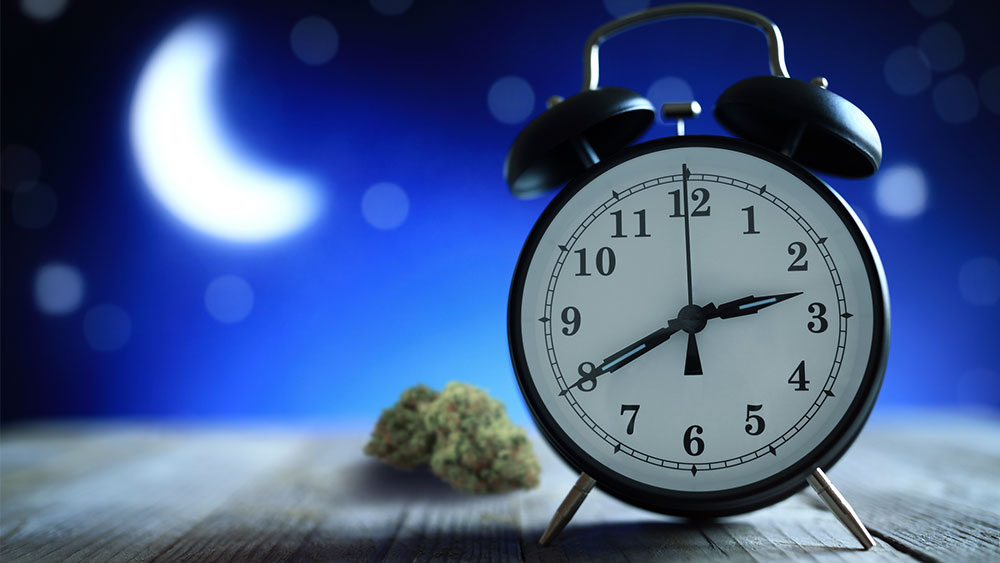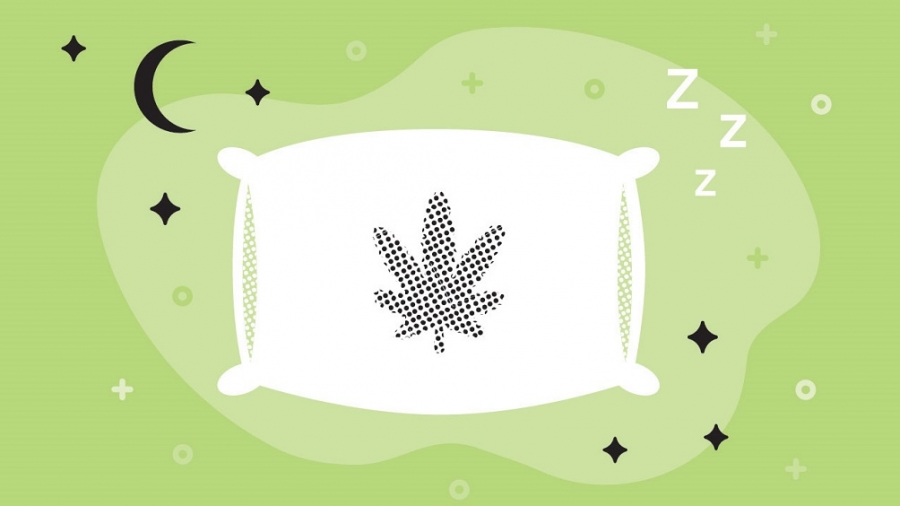Sleep is essential for maintaining our mental and physical health, yet it eludes many adults.
According to the American Sleep Association 50 to 70 million U.S. adults experience symptoms of a sleep disorder. Around 40 million Americans experience insomnia every year and about 10 to 15 percent of adults will deal with chronic insomnia.
So if getting shut-eye is becoming harder and harder, you’re not alone.
With so many people experiencing sleeping disorders, there’s been a rise of interest in one controversial cure: cannabis. Many in the medical marijuana community refer to cannabis as an effective treatment, with little to no side effects, for a range of sleeping disorders.
“Marijuana is an effective sleep aid because it restores a person’s natural sleep cycle, which so often falls out of sync with our schedules in today’s modern lifestyle,” says Dr. Matt Roman, a medical marijuana physician.
Whether you have a sleep disorder or you’re having difficulty sleeping after a stressful day, cannabis might be a choice for you. Marijuana’s analgesic properties might provide some relief for those with chronic pain, while the anti-anxiety properties can soothe a stressed out mind and body.
The science of sleep via cannabis

There are different strains of marijuana. Some are more energizing, and some are calming and sedating depending on the balance of the different cannabinoids.
First, here’s a quick primer on the science behind marijuana. This herb works because it contains different cannabinoids, two of which you’ll see most often:
- Cannabidiol (CBD). CBD has a number of health benefits, and is nonpsychoactive, meaning it doesn’t cause you to feel “high.”
- Tetrahydrocannabinol (THC). THC, a psychoactive cannabinoid, is primarily responsible for that “high” feeling.
Something else THC is responsible for? Inducing sleepTrusted Source. So you’ll want a strain that contains more THC than CBD.
According to a 2008 studyTrusted Source, ingesting marijuana strains with higher levels of THC typically reduces the amount of REM sleep you get. Reducing REM sleep means reducing dreams — and for those who experience PTSD, it could mean reducing nightmares.
So the theory is that if you spend less time dreaming, you’ll spend more time in a “deep sleep” state. The deep sleep state is thought to be the most restorative, restful part of the sleep cycle.
Still, REM is important for healthy cognitive and immune functioning, and marijuana with higher THC levels could impair your sleep quality if taken long term.
But this isn’t true across the board. Some studies have found that sleep can actually be impaired by regular use of marijuana. It’s clear that marijuana changes sleep cycles.
Cannabis and Sleep
Insomnia is a condition wherein the person finds it difficult to fall or remain asleep. Some possible reasons for this disorder are poor sleeping habits, stress, depression, illness, or medication. An individual’s ability to function normally is deeply affected during this period.
For years now, Cannabis is being widely used to treat insomnia. Also known as marijuana, the medicinal benefits of this herb are not something we are unaware of. Though the name ‘marijuana’ has negative connotations in society, studies show it can be used to induce sleep in the users.
What’s the science behind this?
Cannabis contains a chemical called Cannabinoid THC. It acts as a sedative and is responsible for making you fall asleep. Its active compound terpenes are also known for their sleep-boosting abilities. They have a therapeutic effect on the body and also reduce pain and inflammation.
Terpenes work by activating the body’s GABA system. Gamma-Aminobutyric acid (GABA) is an amino acid that works as an inhibitory neurotransmitter. It inhibits the neural activity in the brain and body to induce sleep. It calms your mind and reduces stress and anxiety significantly.
Cannabidiol (CBD) takes on insomnia by reducing pain and anxiety. It relaxes your mind and body to calm you down. This makes it easier for you to fall asleep.
CBD keeps you alert by reducing daytime drowsiness. This balances your sleep-wake cycle which is important to treat insomnia. Also, it does so without making you feel ‘high’.
What does the research say?

There are numerous researches performed over the years that prove the potency of Cannabis to treat insomnia. Here’s what they have to say:
A 2018 study talked about the usage of raw, natural medical cannabis flowers to treat insomnia under naturalistic conditions. 409 insomniac participants completed 1056 medical cannabis administration sessions. They were monitored using the Releaf App. There was a significant development in the condition of the patients using the Cannabis flower.
Tetrahydrocannabinol (THC), the psychoactive compound of Cannabis stimulates the brain cells to release dopamine. This creates a feeling of euphoria or ‘high’ in the user.
Another 2008 study states that a high amount of THC in a Cannabis strain reduces the amount of REM sleep in the user. REM stands for Rapid Eye Movement that occurs while you are dreaming.
THC limits the dreams while sleeping which is beneficial for PTSD patients. It means their ‘nightmares’ reduce as their sleep quality improves. The result is deep sleep with fewer disturbances.
What should you do when cannabis acts as a sleep disturbance?
Cannabis is special because it is used for both medicinal and recreational purposes. It provides a euphoric feeling and elevates your spirit. But to experience these effects, you probably need to take a higher dose of the strain.
However, one should know where to draw a line. Ingesting too much marijuana at once without any guidance can cause anxiety issues. This, in turn, disrupts your sleep pattern and leads to insomnia.
If that is the case with you, a good solution is to follow a detox program. Detoxification is a process wherein all the harmful toxins including the residues of marijuana are flushed out of your body.
It can be done naturally or with the help of various THC detox supplements, according to this fact sheet. It is a 10-12 days program that fully cleanses your body. You can extend it according to your preference.
Once these foreign toxic substances are cleaned out, your natural sleep pattern is restored. A better quality of sleep in turn promotes your overall health and mental wellbeing.
Conclusion
Taking into account the facts and researches, we conclude that Cannabis may help treat insomnia if taken in appropriate doses. Do not consume more than the suggested dose as it can worsen the problem and cause other health ailments.
To be on the safe side, it is always recommended to consult your doctor before using Cannabis as a sleep aid. Keeping in mind your health status they would know better if it would actually be beneficial for you.
The legalization of Cannabis and its acceptance as a legitimate medicinal compound has elevated its importance for sure. But there is still a lot of ground to cover if we are to unravel its full potency.
When we talk of sleep, out of the two varieties of Cannabis, Indica is considered better for that purpose. Its intake facilitates a quick sleep and ensures it stays restful.
Don’t rely, however, on any sleep medication to cure insomnia. Prescription and nonprescription sleep medications are only intended for occasional, short-term use.
If you continue to have insomnia, talk to your health care provider or consider consulting with one of our board-certified providers, who specializes in sleep disorders.

Thank you for the great info on something so scarcely acknowledged these days! I haven’t tried CBD yet, but would like to consider it for joint pain/inflammation.